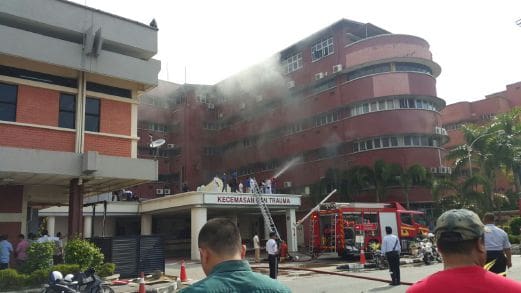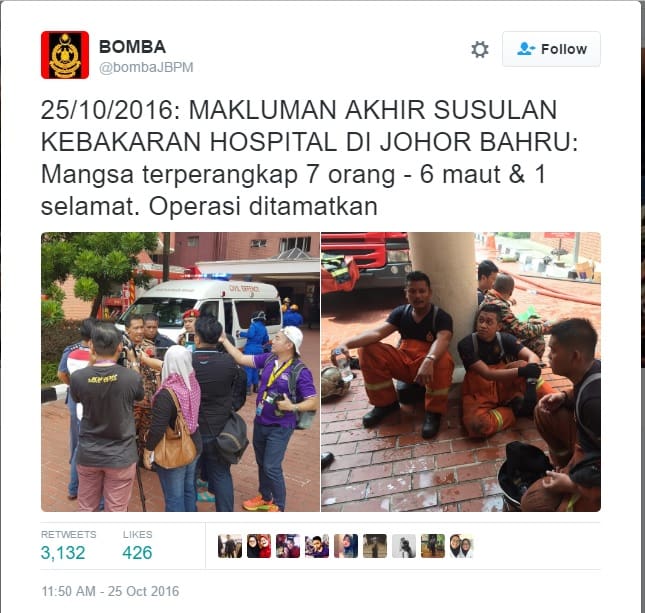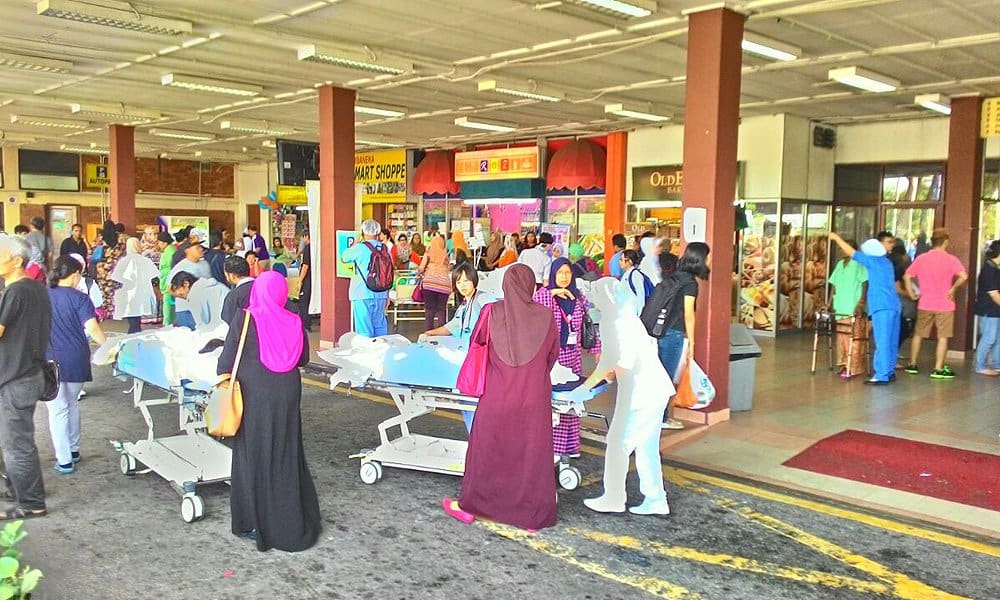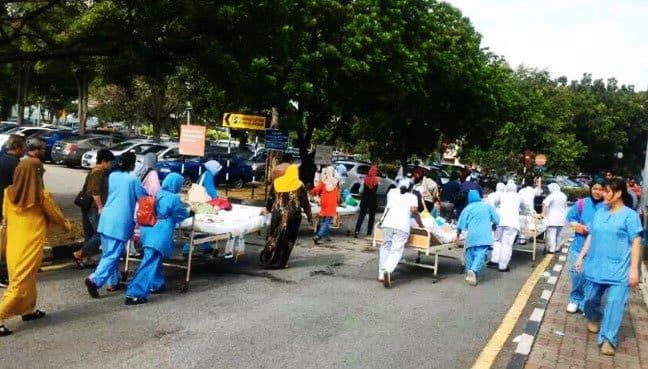
It has been reported that six patients have been killed in a fire that broke out at the intensive care unit (ICU) of the Sultanah Aminah Hospital in Johor Baru this morning. Hundreds of patients were evacuated to other wards after the fire broke out at 9am, on 25 October 2016.

The Fire and Rescue Department confirmed in a tweet that seven people were trapped in the building, out of which 6 perished in the blaze. One person was successfully rescued albeit suffering from 80% of burns on his body.
The Star reported that out of the 7 victims, four were female and two were male. Johor Baru (South) OCPD Asst Comm Sulaiman Salleh said all the victims were in their 50s.
“We believe that all the victims died due to suffocation caused by the thick smoke in the ward,” he said when met at the scene.
Asst Comm Sulaiman also mentioned that there were 193 staff and 294 patients at the hospital at the time of the fire of which 8 staffs and 7 patients were in the ICU when the incident happened.
It is understood that patients in the maternity ward, including some who had recently given birth, were evacuated safely.
Johor Fire and Rescue Department director, Othman Abdullah, said that the department received a distress call at 8.56am. He also informed that 10 fire engines were deployed with 160 personnel from Johor Baru, Tebrau, Kulai and Johor Jaya fire stations to the scene. The fire affected two floors of the main Hospital Sultanah Aminah’s building but they managed to stop it from spreading to other floors.

Johor Health and Environment Committee chairman, Datuk Ayub Rahmat, expressed his sympathy over the loss of lives due to the fire, and declared that the needs of evacuated patients are top priority at the current time.
“We will let Bomba and the police investigate the cause of the fire and we are looking into ways to accommodate the evacuated victims, as even (the nearby) Hospital Sultan Ismail is crowded with patients. Our deepest sympathy to the families and friends of the victims. We will extend our help to them in whatever way possible,” said Ayub, who is attending the fifth annual Low Carbon Asia Research Network (Locarnet) meet in Bandung, Indonesia.
He also encourages private hospitals to open their doors to victims, especially those in critical condition and women in labour.











